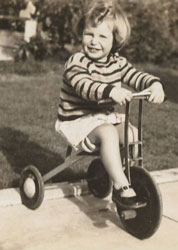 Discipline is having the courage to set appropriate rules and stay detached when implementing those rules, thus guiding your child towards responsible adulthood.
Discipline is having the courage to set appropriate rules and stay detached when implementing those rules, thus guiding your child towards responsible adulthood.
Firstly, let us look at the meaning of the word ‘discipline’. In the minds of many it has become synonymous with punishment. In fact, the word discipline comes from the Latin DISCIPLINA meaning to disciple, teach, instruct or guide. The true meaning of the word is one of a teacher instructing the pupil; a far cry from the meaning usually given to the word.
Children feel secure when parents give clear instructions, mean what they say and consistently follow through.
The limits imposed must be age-appropriate. The time for coming home from an outing for a seven-year-old will be quite different from that of a sixteen-year-old. There is still likely to be resistance from children and adolescents, even when the limits imposed are age-appropriate. The key task is not to develop unnecessary resistance from the child by imposing inappropriate limits.
The principle of Competence requires parents to have a great deal of self-discipline. Difficult children are often what their name implies: difficult! Parents, who would otherwise be patient people taking life’s problems in their stride, can find themselves reduced to tears and outbursts of frustrated anger. Parents will also receive a lot of unhelpful advice from other adults who have never experienced living with a difficult child.
Discipline strategies are intended to enable the child to improve self-control and to build a sense of personal competence. Anything that breaks the principle of Competence should be eliminated.
In this chapter, five rules are outlines and form the basis for your new mode of parenting.
The Rules:
- Eye-I
- Stay detached
- We-together
- Set Boundaries
- Show Empathy
Believe you can be competent, keep your expectations realistic, keep a sense of humour and don’t be discouraged by the bad days. Remember that as children grow you can channel their learning in positive and creative ways.